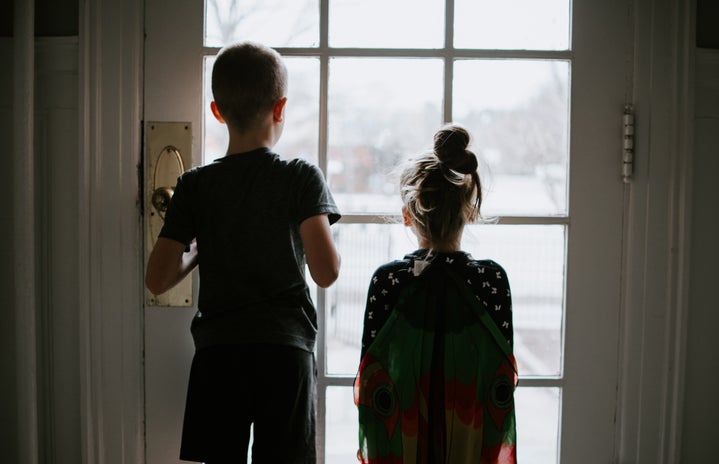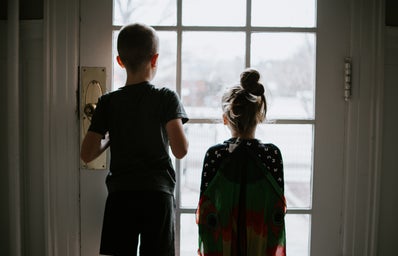Warning: this article contains spoilers!
Many films grapple with the idea of motherhood. Mamma Mia explores single motherhood and the raising of a child without a father. The Babadook is a horror that tries to understand how trauma and mental illness can affect a mother and her relationship with her child. Ladybird explores a mother-daughter relationship where they are both desperately trying to be understood by the other one. But no film discusses the overwhelming responsibilities and all-consuming nature of motherhood quite like The Lost Daughter.
Leda (played by Olivia Colman) and Nina (Dakota Johnson) are two mothers on holiday, separate from each other, but sharing a deep, unspoken connection through snippets of conversations and moments of catching one another’s eye. We see Nina struggling to keep up with her young daughter, totally exhausted by the responsibilities that she brings, while her husband is enjoying his time with his friends, leaving Nina to look after the child alone. Leda’s relation to this situation sends us into flashbacks of her own life, where we see young Leda (Jessie Buckley) with her own children. There’s a dark undercurrent to these flashbacks, and we see Leda interacting with her children in a way that is touched with resentment. It is understood that children were not Leda’s dream, and her career was always more important to her. More importantly, her husband shirked his responsibility for the children, leaving it to Leda as the woman of the house, despite him wanting to be a father. It is at this point that young Leda snaps and walks out on her children completely, opting to pursue her life as she wanted it.
Maggie Gyllenhaal’s portrayal of a woman completely overcome with exhaustion from her children is not something we often see on screen. Exhausted mothers are often depicted in comedies, with frazzled hair, perfect makeup, and dungarees. So, seeing Leda in this totally overwhelmed state, yelling at her children and experiencing feelings of resentment towards them, as an audience, we have been socialised to view her as a ‘bad mother.’ And then when she walks out on her daughters, we are positioned to condemn her behaviour and regard her as selfish and unloving. But Leda is a woman who knows herself and knows that she is not in a position where she can give her girls the love they need, so she takes herself out of the situation in order to maintain the best possible lives for all three of them. Motherhood seems to be the natural expectation of women, something to opt out of rather than to opt in to. However, it is an all-consuming responsibility, that many people simply are not able to or do not have the desire to meet. Olivia Colman’s performance in this film is a heart-breaking dissection of a woman pushed into a role by society, who absolutely does not belong there, and who refuses to be suffocated and trapped into a life she does not want. As the audience, we are required to place our trust in a woman who knows her own mind and accepts that as the right choice. It may be true that Leda is a selfish woman, but despite all the men acting in similarly selfish ways throughout the film, Leda is the only character who experiences criticism and persecution for her choices. It is a clear dissemination of the roles that men and women play in parenthood, and the irrational expectations placed on the mother and not on the father.
The Lost Daughter is a story of motherly love, but it is a love we have never seen before. It rejects the idea that motherhood comes naturally to women, and pushes us to think critically about the roles that men and women fall into having had children, and the justness of leaving all of the responsibility to a single parent. Leda deserves just as much sympathy as her baby daddy, regardless of her radical actions and arguably selfish life choices. Some women just are not built to raise children, and that is a beautiful thing.


